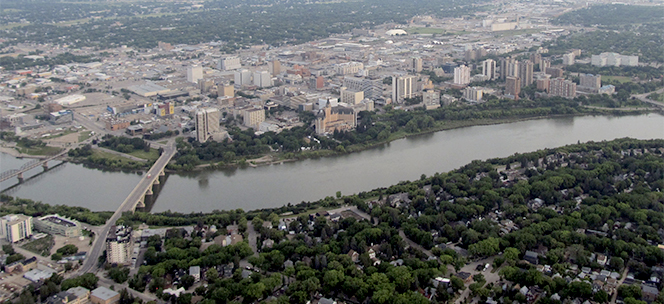
On January 17, Deputy Premier Clay Serby told the Canadian Club that Saskatchewan has a bad attitude. Or is it just the mind-set from our politicians that's in need of a serious adjustment
For the 12 months ending July 1, 2001, Saskatchewan suffered a net out-migration of 6,209, the worst out-migration of any province, and the biggest population loss for this province in a decade. Last year Saskatchewan lost 15,000 jobs, while Manitoba gained 9,300. Serby rejected a couple of often heard explanations. "It's not because of high taxes," he said, touting the province's income tax reductions. "And it's not about a poor business climate" he said, citing studies confirming Saskatchewan's competitiveness. But can these things be dismissed so casually
First of all, its true the provincial government continues to make progress toward reducing Saskatchewan's high income taxes. Effective January 1, 2002, tax rates are down and tax credits are up. According to government numbers, the average family earning $50,000 a year will pay over $800 less provincial income tax than in 1999.
But, unlike the federal government and every other province, Saskatchewan tax brackets and tax credits are not adjusted to inflation, and that won't change until 2003. Simple inflation has been pushing us into higher tax brackets, and making the provincial credits worth less. This will amount to tens of millions of dollars taxed back by the province.
Taxpayers should also look at the total tax take, not just income taxes. When income taxes started going down, the province expanded the number of goods and services subject to the PST. And then there are municipal and school taxes. Since 1985, property taxes have risen by an almost 5% per year. The province has off-loaded financial responsibilities onto local government and school boards and forced up mill rates. In hard-pressed rural areas school taxes alone have risen by 56% since 1992.
Add it all up, and the income tax cuts look less impressive. Whether we pay taxes to the city, the province, the municipality, or whether we pay them at tax time or when we go to the store, it all comes from the same place: our pockets and purses. Tax cuts have become a shell game designed to maximize political credit and minimize lost revenue. But, Saskatchewan still has a high tax burden.
What about the general business climate Well, the forecast calls for a 100% chance of government interference. Only weeks after selling (at a loss) the last vestiges of Spudco - a potato boondoggle that cost taxpayers about $28 million - the government put another $15 million into the meat processing business. This government has learned nothing from its business failures. Crown Investments Minister Maynard Sonntag recently claimed that Spudco was a success!
The Premier also seems immune to the facts. After cutting the ribbon on another food processing facility in Saskatoon (primed by $20 million in taxpayer money), Premier Lorne Calvert told the Saskatchewan Chamber of Commerce "It is the role of the province in my view to involve itself in direct investment partnerships-". A statement often heard in Cuba, but rarely in Canada.
Maybe that's why people continue to leave Saskatchewan, because they are crowded out. The government casts such a long shadow across the economic life of this province that there is no place in the sun for privately-owned business to grow.
The government can best improve the business climate by getting out of business. The government can best improve the tax climate by reducing the overall tax burden, and particularly by reforming the punitive property tax regime.
If Saskatchewan has a bad attitude, the attitude adjustment has to start at the top.



.jpg)

.jpg)
